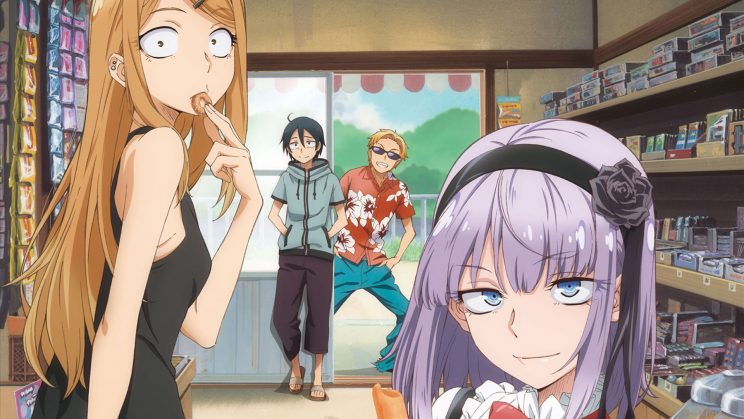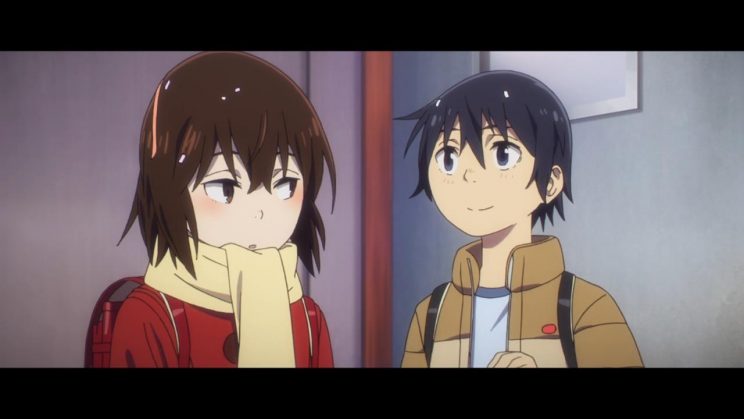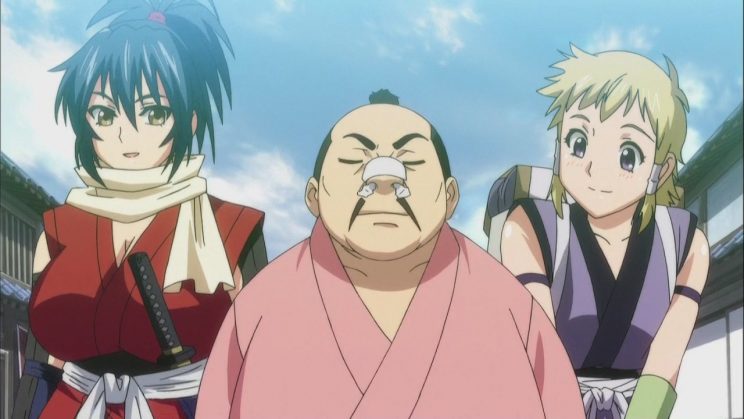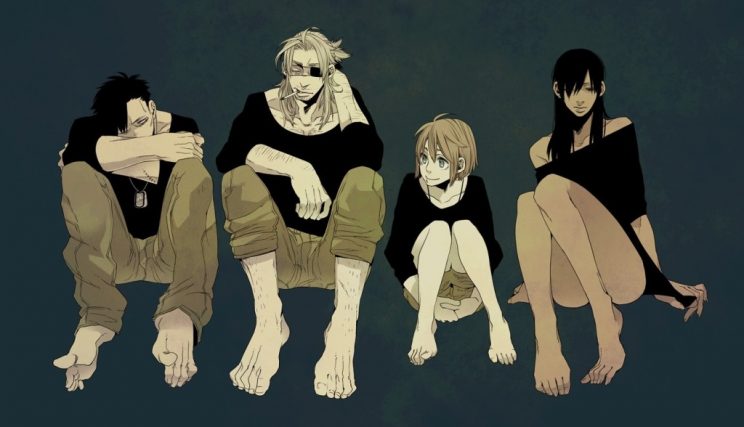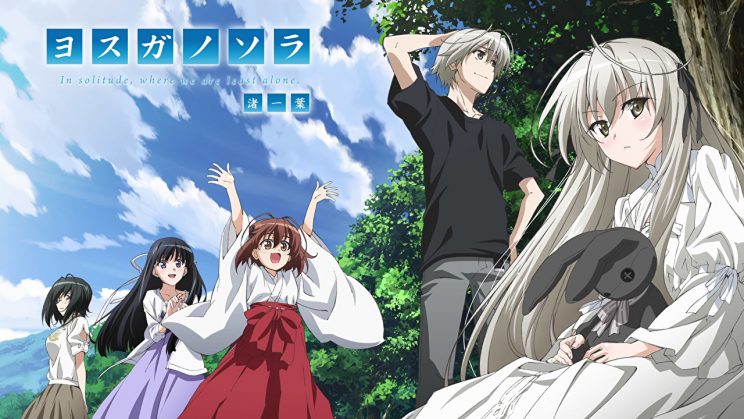Ever tried a new type of candy? The wrapper makes it sound interesting, so you get it, and, upon gulping it down, were disappointed in that it wasn’t what it seemed? I mean, it’s an OK candy, but you were expecting more or something else. My sad little tale explains everything right and wrong with “Dagashi Kashi”. Now, to make things even more convoluted, this is one of those Japanese language puns. If you pronounce it as ’Dagashi Kashi’ it means ‘cheap sweets candy’, but if read or said as ‘Daga Shikashi’, it can also mean ‘however’. The show is like that. Continue reading
I Have “Erased” That Line
Every year, one show comes out that is completely head and shoulders above the rest of the offerings. The only thing wrong with “Boku Dake ga Inai Machi”, (“The Town Where Only I am Missing”, also known as “Erased”) is the capsule description that came with it (“Satoru Fujinuma is a struggling manga artist who has the ability to turn back time and prevent deaths.”) A show lives or dies by the capsule and this one sank it low on my ‘must see’ list. Thank goodness that it was next in line when a slack period came around or I may have missed out on something tremendous. Continue reading
Do You Believe in “Magic”?
This is seriously one of the weirdest ninja shows I have seen since “Senran Kagura”, but with unprecedented levels of fan service and that one was burgeoning with it. And I mean off the charts direction of fan service. Can you have too much fan service? OK, the correct term for a female ninja should be ‘kunoichi’, but no one knows that, whereas everyone understands ‘ninja’.
“Manyū Hiken-chō” (“Magic Breast Secret Sword Scroll“) relates a tale of ancient Japan…well, a different Japan than you have seen in the history books. In a reign ruled by the Tokugawa Shogunate (although it ran from about 1600 to 1870, let’s date this around 1840 or so), big breasts mean everything. And I mean EVERYTHING! Those who have huge breasts are guaranteed wealth and popularity. The women who lack them are not considered even human, more like pathetic wretches. Continue reading
“Love is Like a Cocktail” is a cute couples comedy through 9 episodes
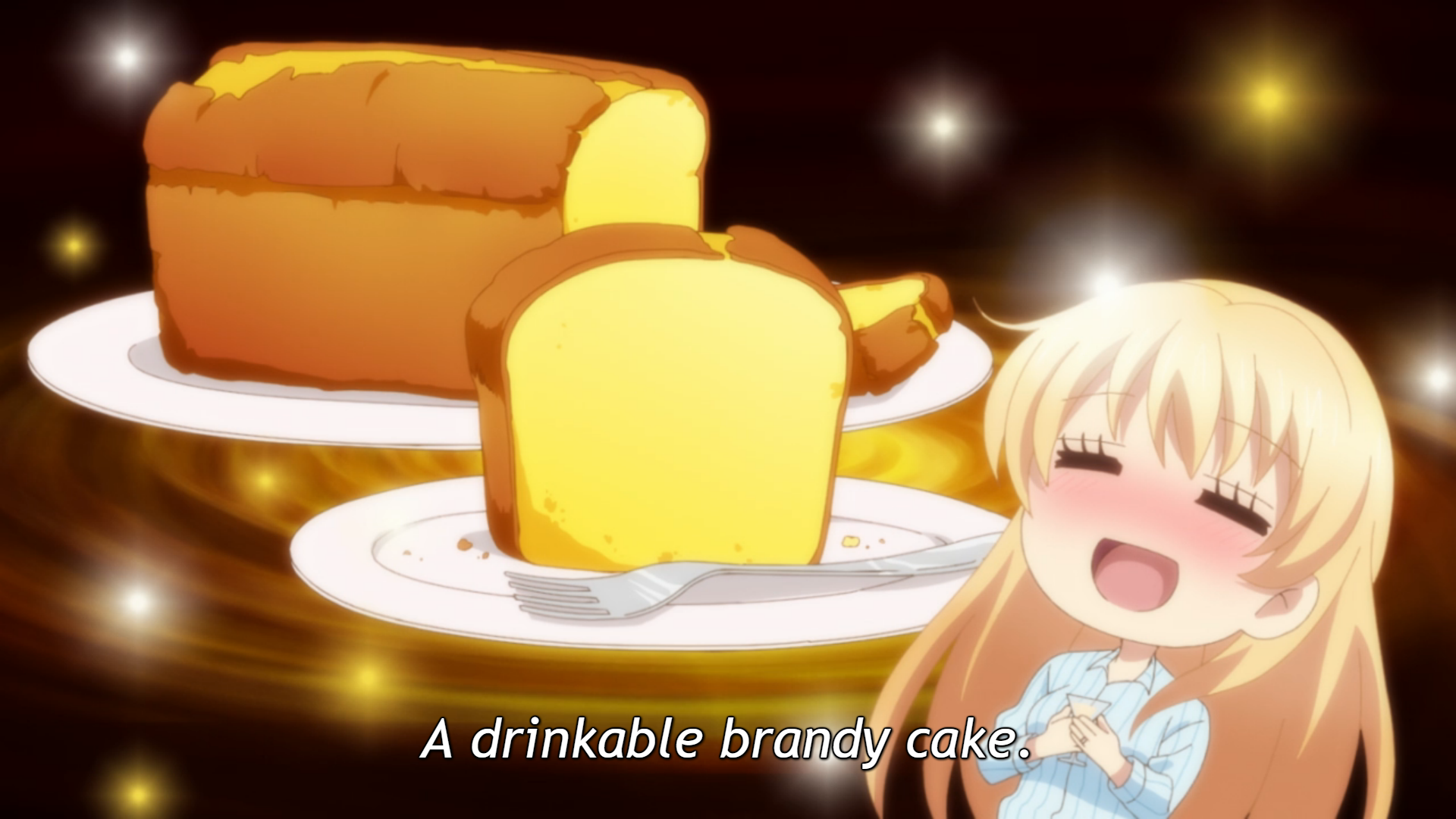
Chisato while drinking a “Zoom” cocktail
I’ve previously written about my love of short-episode anime series and my current week-to-week favorite is Love is Like a Cocktail (aka Osake wa Fuufu ni Natte kara). Its episodes are three minutes long and feature Chisato Mizusawa, an employee at a public relations firm, drinking cocktails (both alcoholic and non-alcoholic) at home made by her husband Sora.
“Gangsta” Life
This is a gritty crime drama, set out in a town that is ruled by crime lords, so everyone is miserable all the time. It emotionally rains every day and life is very cheap. Welcome to “Gangsta” (“Gyangusuta”).
We are in the town of Ergastulum. It is not truly identified as such, but it had a Mediterranean feel to it, almost Italian. We follow the lives of two ‘handymen’, Nicolas Brown (far left) and Worick Arcangelo (right next to him). Many years ago, Worick had Nic as a personal bodyguard, but when Worick’s father stubbed out a lit cigarette in his eye (you did notice the eye patch, right?), Nic dispatched the family and they both went underground. You see, Nic is ‘special’.
He is known as a ‘Twilight’, a person with superhuman abilities, gained from the drug Celebrer. He is deaf and uses sign language to communicate, but reads lips well. They are dispatched to clean up the dirty jobs that a lot of the other crime families won’t even touch. The two ladies? At the far end is Alex Benedetto (Ally) who was working as a prostitute, but is saved by the two guys (she plied her trade in the alley just across from their office/apartment) not only from her life, but from her abusive pimp. The little girl is Nina and works for Dr. Theo, one of those back-alley doctors who patches up people after the rather numerous battles and helps get the Twilights their Celebrer.
The series details their lives in this gritty town and the machinations in place that seem bent on eliminating all the Twilights. Continue reading
Missed “Connection”
This was a rather confusing show, “Yosuga no Sora” (“Sky of Connection”), in that you were never really sure where the reality was, if what you were seeing was merely the overheated fornix of any of the characters or if it really was as it really was, which made things more disturbing than it had to be.
We start off with the tragically orphaned Kasugano twins (she, Sora; he, Haruka; both to the right). They travel to their grandparents’ countryside residence via train, hoping to reconstruct the shards of a shattered life. Two lonely souls, so physically alike, yet so spiritually divergent, that they are unaware of the challenges ahead of them. Sora is weak, frail since her birth, and so is predisposed to being reclusive and unrelentingly dependent on her brother for everything. Haruka is damaged emotionally, as he clings to memories of the past, hoping to find the strength he needs to protect his ailing sister and move forward towards a better, new world for them. Yeah, you already see the storm clouds on the horizon.

